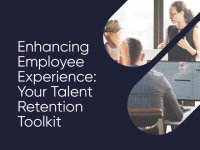Call center process automation: 7 workflows to automate first
Read this blog for 7 impactful examples of how call center process automation streamlines workflows, boosts efficiency, reduces handle times, and impr...
Solutions
Products
Ingest omnichannel customer interactions, from audio and screens to surveys, for complete visibility and analytics.
AI virtual agents, real-time multilingual translation, and event-based customer feedback drive smarter, personalized CX initiatives.
Customers
Solutions
Products
Customers
Resources
Company
February 21, 2019

Being a contact center agent or advisor can be a very fulfilling job when you’ve solved a problem for a customer and sent them away happy. But not every contact center is set up to make it easy to be a true problem solver and provider of excellent customer service.
So, what do potential agent need to learn in the recruitment process to set the right expectations and increase their satisfaction in the role?
I believe there are seven things every contact center agent needs to know.
The reality is that every call center agent will have to deal with customers who arrive in a negative frame of mind. The CallMiner Churn Index has shown that over a third of customers (36%) say they arrive annoyed; one in 6 (16%) arrive angry and the same number arrive ready for an argument!

Managing a call in a way that converts an unhappy customer into a happy one is therefore incredibly valuable. Conversation analytics can identify words, phrases and acoustic qualities that demonstrate when a customer is unhappy. They can also identify what triggers negative reactions and calls that do not deliver a positive outcome. Fortunately, the reverse is also true. Customer engagement analytics can identify the words, phrases and tone that trigger a positive response.
So, agents would need to know if they will be supported with this kind of insight. If they are, they will be able to adjust what they say and how they say it according to the behavior of the customer. By providing supervisors and agents access to real-time and post-call analysis, it will be possible to identify best practice and reinforce positive behavior across the whole team. Real-time analytics goes one step further. It identifies when a call is deteriorating and prompts the agent to adjust their tone in time to rescue the call and deliver a better customer experience.
Agents need to know how they are going to be scored so they can take control of their own performance. Having an analytics tool that analyses 100% of their interactions will help in a number of ways. These include:
It’s very important when selecting a role to have a clear understanding about how the employer supports learning and development. By analyzing 100% of customer interactions, you will take the guesswork out of identifying exactly where agents need help. This enables you to deliver tailored coaching rather than following generic training plans that may not be giving them the guidance they need. Supervisors can use the insight from analyzing 100 percent of their agent’s interactions with customers, to create targeted training programs to ensure agents receive additional coaching to support an agent’s personal improvement objectives.
By giving every agent access to automated, daily scorecards, you can deliver fast and effective performance feedback. This gives supervisors the opportunity to coach their agents efficiently. Perhaps more importantly, access to personal performance data (based on every interaction) also helps to create a culture of self-evaluation and improvement, as agents recognize where, on the optimum customer path, they could be improving their performance. For example, if the scorecard shows a need to improve empathy, the agent can focus on this during the next shift. Supervisors can also reinforce the desire to self-coach by using the daily scorecard to recognize the improvements the agent made on their previous shift.
Many call center agents are likely to encounter vulnerable customers who need special consideration when interacting with them. Customer engagement analytics can identify words, phrases and acoustic qualities that demonstrate vulnerability. It can also identify when certain words and phrases increase stress levels with the customer or agent (or both). This means it’s possible to identify the emotions of the customer on the call, good and bad. It’s also possible to understand customer preferences and identify which types of customers react best to different types of solutions. And, most importantly, it means agents can be guided through their calls with prompts and alerts, so they feel supported to follow the best course of action at all times.
Agents will want to feel good about the service they provide to customers. The CallMiner Churn Index has shown that two-thirds of customers contact with a problem that needs resolving. So, agents need to know that they will be given the information they need to solve problems on the first call. First Call Resolution data often doesn’t get captured or gets captured incorrectly because, traditionally, it is a difficult metric to track. One solution is to use engagement analytics to analyze every single interaction. By capturing the actual conversational content and integrating it with caller identifiers, companies can quickly and easily identify repeat contacts. In addition, speech analytics allows the correlation of repeat calls with specific reasons, products, or agents. By identifying the causes of repeat contact, action can then be taken to resolve these issues.
Agents also need to know if they will have access to the right people to help them when they need it. Connecting frontline agents to back-office experts, who have the specialist information to handle complex problems, can make agents feel supported and also provide the satisfaction of delivering a great customer experience. Using technology that alerts team leaders when an agent may need extra assistance, is key to making agents feel supported in their role.
When you are handling dozens of calls a day, it’s difficult to take a step back and identify when improvement is necessary and possible. Using engagement analytics to coach them to their best personal performance helps to create a culture of self-evaluation and improvement. This information enables agents to recognize where, on the optimum customer path, they could be improving their performance. Conversation analytics software can also help to identify sub-optimal outcomes, work out why they happened and empower agents to adapt their behavior accordingly. And the information could be delivered in real-time. A supervisor coaching on an issue that occurred 3 weeks ago is go to delay positive action for both the agent and customer. Coaching empowers agents to feel more expert and more in control – which in turn will have a positive impact on job satisfaction, mental health and well being.
Agents can expect to be trained to handle issues that occur all the time. But what about new issues? Will they catch the agent unprepared – leading to a sense of failure. Consumers increasingly use different channels for sending different kinds of messages. By analyzing every interaction across multiple channels, engagement analytics can identify potential issues before they have reached the call center. For example, if there is a problem with a product, and customers are beginning to tweet about it, engagement analytics will be able to identify the emerging trend – giving time for agents to prepare to handle the calls when they arrive
As the volume of data increases, artificial intelligence-fueled analytics will help agents further by predicting issues before they become a serious problem. It will do this by identifying when a course of action creates a particular customer reaction. This will enable you to predict the possible rise in call volumes to your customer center and also prepare your agents with the right information beforehand to help ensure that they are prepared to handle difficult issues.
Those are my top seven. What else do you think aspiring agents should want to know before at the recruitment phase if they want to feel happy and productive in their agent role?

CallMiner is the global leader in AI-powered conversation intelligence and customer experience (CX) automation. Our platform captures and analyzes 100% of omnichannel customer interactions delivering the insights organizations need to improve CX, enhance agent performance, and drive automation at scale. By combining advanced AI, industry-leading analytics, and real-time conversation intelligence, we empower organizations to uncover customer needs, optimize processes, and automate workflows and interactions. The result: higher customer satisfaction, reduced operational costs, and faster, data-driven decisions. Trusted by leading brands in technology, media & telecom, retail, manufacturing, financial services, healthcare, and travel & hospitality, we help organizations transform customer insights into action.